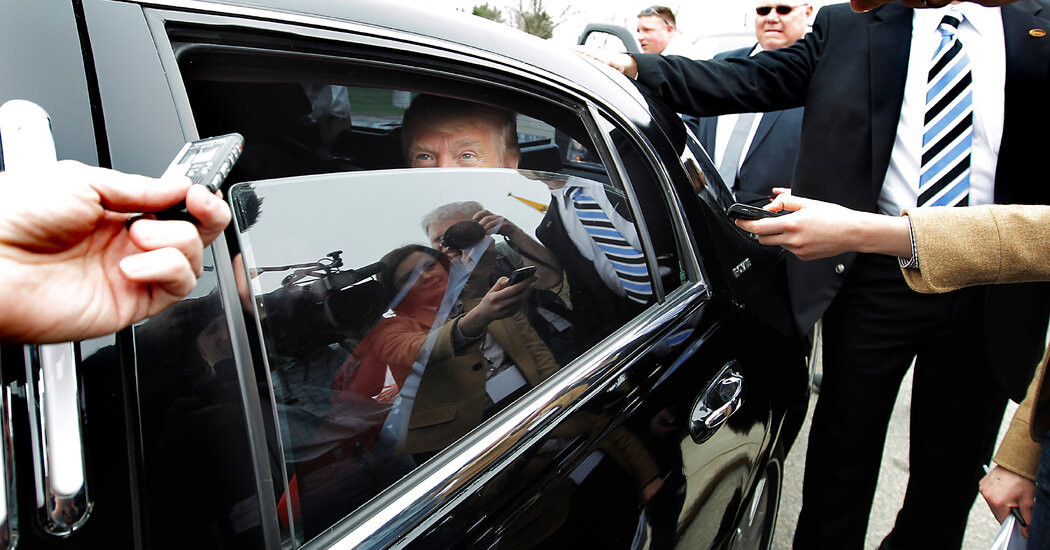

Raising questions about who gets to claim to be an American powered the president’s political rise. A Supreme Court case may allow him reinterpret a right enshrined in the Constitution since the 1800s.
For the Supreme Court, Thursday’s hearing was the start of a speedy review of the White House’s effort to overturn the guarantee of birthright citizenship.
But for President Trump, the court’s arguments were just the latest chapter in a story that goes back more than a decade.
Mr. Trump has for years used questions about citizenship and who gets to claim to be an American to power his rise from reality TV star to commander in chief.
In 2011, Mr. Trump began to question President Barack Obama’s birthplace in television interviews, pushing a racist lie that he was really born in Kenya and therefore ineligible for the White House.
“Why doesn’t he show his birth certificate?” Mr. Trump asked on ABC’s “The View” in 2011. “I’m starting to think that he was not born here,” Mr. Trump said on NBC’s “Today Show.”
The more Mr. Trump questioned Mr. Obama’s presidency, the better he did in early presidential polling in 2012. And Mr. Trump has continued to question what constitutes being an American to stoke anger and enthusiasm when faced with a political challenge. He has often argued that birthright citizenship only encourages immigrants to cross into the United States en masse, exhaust the resources of local communities and make the lives of Americans harder.



